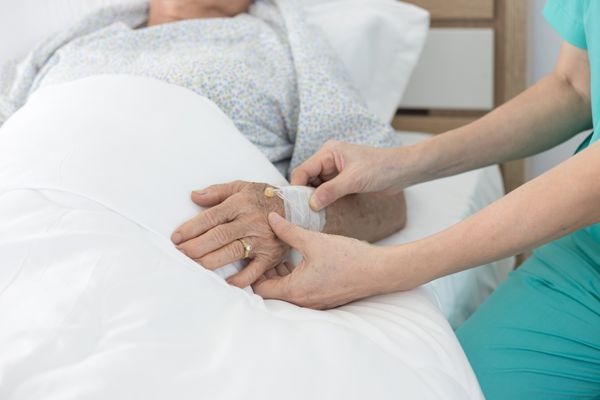
Florida has long enjoyed its motor vehicle no-fault legislation intended to cover injured drivers after an accident, without first determining fault. This law, adopted by the state in 1979, requires that drivers within the state purchase personal injury protection coverage, otherwise known as PIP. In the event of an auto accident that results in bodily harm, this insurance policy is paid out, up to $10,000 in medical coverage, regardless of who caused the accident.
For years, PIP has been a seamless way to cover medical bills quickly for injured patients who need immediate medical attention, as well as for medical and emergency service providers to get paid for their services promptly. This immediacy is achieved because neither party has to wait until the courts decide fault, which often takes a minimum of two years to determine.
Although PIP has benefited both patients and medical providers for years in the state of Florida, many misconceptions about this law still abound. One such myth is that PIP does not cover palliative care. Unfortunately, many medical providers still believe this myth, which potentially leads to unclaimed, but legally covered, patient benefits. One goal of this piece is to discuss where this myth may have begun and to clarify that palliative care is, in fact, covered by PIP law in Florida.
Is Palliative Care Covered by PIP in Florida?
Since its inception, Florida’s PIP legislation has consistently come under fire, and this is especially true in recent years. The most consequential changes to this piece of legislation took place in 2012 and went into effect in early 2013. One particular amendment to the law altered the maximum amount any one individual may recover from their auto accident-related injuries.
In previous years, no strict qualifiers were in place to bar recovering the full $10,000. However, now to qualify for the maximum of $10,000, an individual must specifically visit a medical doctor (M.D.) or an osteopathic doctor (D.O.), who must diagnose the individual with an emergency medical condition, or EMC. Otherwise, the maximum an individual may recover is significantly reduced to only $2,500 to cover the cost of their injuries.
One reason for this change in PIP law was the goal of eliminating “soft tissue” auto accident injury cases. Such injuries consist of minor impact, or soft tissue injuries (as the name implies), such as whiplash, back or disc-related injuries, minor traumatic brain injuries, or concussions. Such injuries are typically difficult to pinpoint in terms of providing objective evidence for them; soft tissue injuries usually cause individuals plenty of pain and discomfort, but these are not easy to locate with routine medical exams, like with an MRI or x-ray.
For this reason, many medical providers believe that soft tissue injuries are generally not covered by PIP. Since many of these types of cases may require palliative therapies, medical providers further believe that palliative care is also not covered by PIP in Florida.
At the same time, since PIP doesn’t cover expenses related to pain and suffering, medical providers may take this to mean that palliative care intended to alleviate these stressors is likewise not covered by PIP.
It’s important to understand, however, that palliative care can be covered by PIP in some cases. This is true of cases in which a patient who suffers from a soft tissue injury sustains prolonged mental or emotional difficulties as a result of their injuries. Patients who develop these further issues may be in need of palliative care to improve their overall quality of life following an accident, and these services may be covered by PIP.

Defining Palliative Care
Palliative care is often confused for hospice care, but the two are not the same. Like hospice care, palliative care focuses on the holistic needs of a patient, including ways to relieve pain and suffering in order to enhance the patient’s overall quality of life while living with a challenging medical condition.
While this medical condition may be terminal, palliative care is not strictly limited to these types of medical conditions. Instead, palliative care services may focus on combatting various types of pains, emotional or psychological conditions or stressors, anxiety, loss of appetite, nausea, or sleeping difficulties, among other ailments, that may be a side effect of some other medical condition.
Palliative care is an interdisciplinary approach to therapy that addresses the spiritual, emotional, and communal needs of a patient. This type of care can be provided in various locations, such as hospitals, nursing homes, outpatient or specialized clinics, or at the patient’s home.
Typically, palliative care providers work closely with an individual’s family and medical care providers to determine a holistic plan of action in order to improve the patient’s quality of life, regardless of the stage of illness or point of diagnosis. While this type of care may not address an immediate medical condition, its effects are nevertheless substantial. A recent study published by the New England Journal of Medicine found a link between palliative care patients and longer life spans, as opposed to patients who did not receive palliative care.
Have More Questions? Contact GED Lawyers Who Specialize in PIP Cases
If your patient has suffered a soft tissue injury or is considering palliative care services due to an auto accident, contact the law offices of GED Lawyers today. Medical treatments for your patient, including potential palliative care services and therapies, may be covered by PIP law in Florida. However, insurance companies often dismiss soft tissue claims, even though this type of injury is the most common following an auto accident. In order to successfully secure your patient’s PIP benefits and get compensation for your services, you need a trusted and experienced legal team to fight for you.
The attorneys of GED Lawyers offer a proprietary system for PIP representation as well as dedicated support staff to meet this goal. To learn more about PIP claims in Boca Raton, how GED Lawyers can help, or to get your free initial consultation on a case, contact our attorneys today.

